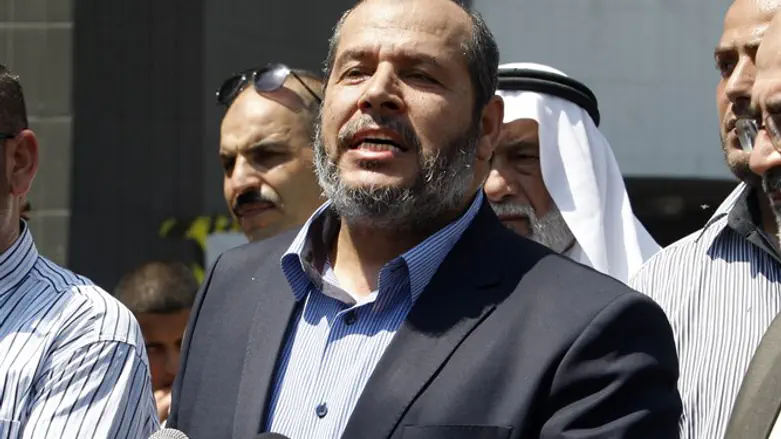
A senior member of the Hamas terrorist group said on Friday that talks with Israel on a long-term ceasefire deal were in “the final stretch.”
The official, Khalil al-Hayya, told the Lebanon-based Al-Mayadeen television the deal would follow understandings reached between the sides at the end of Operation Protective Edge in 2014. He did not elaborate.
Al-Hayya said that Hamas supports reaching an agreement.
His comments came as a Hamas delegation in Cairo was be discussing the deal being mediated by Egypt and the UN.
Izzat al-Rishq, a member of the Hamas political bureau, said on Friday evening that the talks will resume after the Muslim holiday of Eid al-Adha next week.
"We concluded today in Cairo a round of consultations with the Palestinian factions on the issue of calm and reconciliation. We made it clear that our position is that all steps will be within the national framework, we presented our vision on the subject of the ceasefire and heard important ideas from our brethren in the other factions. The efforts will be renewed after the holiday," he said, according to Channel 10 News.
Earlier on Friday, the Palestinian Arab Ma'an news agency published details regarding the potential ceasefire agreement between Israel and Hamas and the other terrorist organizations in Gaza.
According to the report, the agreement does not include a demand to stop the demonstrations on the Gaza border but does include an obligation by Hamas to prevent the participants from approaching the border fence and to stop launching incendiary kites and balloons at Israel.
A senior Hamas source said that the issue of the civilians and bodies of Israeli soldiers held by Hamas would not be discussed until Israel's intentions regarding the lifting of the blockade on Gaza are clarified. He estimated that the issue would be relevant two months after the implementation of the ceasefire.
Also on Friday, the Lebanese newspaper Al-Akhbar, which is affiliated with Hezbollah, reported that Hamas rejected a proposal to create a sea route between Gaza and Cyprus only after a prisoner exchange deal was reached with Israel.
According to the report, Hamas said that the issue of a prisoner exchange deal was complicated and that it might take years before a solution was found.
(Arutz Sheva’s North American desk is keeping you updated until the start of Shabbat in New York. The time posted automatically on all Arutz Sheva articles, however, is Israeli time.)
